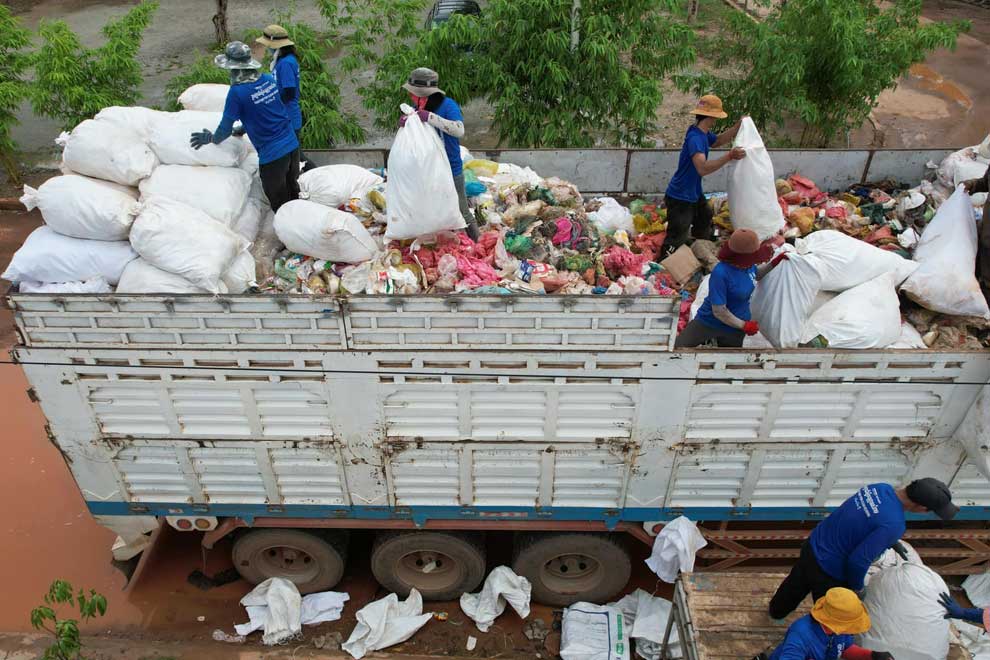
Royal Academy of Cambodia (RAC) president Sok Touch (right) meets with representative from South Korean company Geoentech on innovative waste processing in late June. RAC
The Royal Academy of Cambodia (RAC) announced a new partnership with Geoentech, a South Korean renewable energy firm specialising in waste management and recycling. Together, they aim to explore innovative ways to convert waste into gas, electricity, and organic fertilisers.
RAC president Sok Touch said on July 4 that Geoentech has a proven track record of managing and recycling waste. One of their successful endeavours includes transforming kitchen waste into nutrient-rich biochar fertiliser, an effective organic compost. This collaboration marks a promising step towards eco-friendly waste management solutions for Cambodia.
“In our nation, waste segregation is not fully practised. Plastics, glass, and organic waste are often thrown together,” Touch acknowledged.
“However, each of these waste types can be upcycled or recycled. For instance, plastic can be converted into gas or oil, and kitchen waste into compost. We’re conducting a pilot project in Battambang province to study these recycling opportunities,” he added.
Touch suggested that the project could also be initiated in any province or even in Phnom Penh. The capital city generates a substantial amount of daily waste, unlike Battambang province, which may not provide enough waste for the project.
“If the project proves successful, it would significantly reduce the daily waste volume generated in Phnom Penh,” said Touch.
“Following our study, Geoentech will select a promising area from which to launch their operations. Currently, we have waste collection companies which simply dispose of rubbish. However, having a firm focused on recycling could bring enormous benefits, considering Cambodia’s escalating waste problem,” he added.

He stated that the RAC will reassess their objectives and policies regarding utilising household waste as a source of energy and fertiliser. This perspective aligns with their ongoing research into converting kitchen waste, like coffee grounds and bones, into biochar fertiliser. This shared vision prompted Geoentech to propose collaboration with the academy.
Nou Sovann, executive director of the environmental protection NGO River Ocean Cleanup, expressed support for the initiative. He observed that public understanding of waste management has improved, but transforming waste into valuable energy and fertiliser remains a challenge, particularly in Phnom Penh.
“We’ve witnessed various types of waste that could be transformed into compost. However, our capacity to do this is limited,” he explained.
“Without this capability, kitchen waste, leaves, and vegetable leftovers are neglected, sometimes polluting our waterways and impacting our environment,” he continued.
“River Ocean Cleanup has already collected tonnes of waste from rivers and oceans, endeavouring to recycle as much as possible. If the South Korean firm invests here, it could bring immense benefits to Phnom Penh and all of Cambodia,” he enthused.
Recent data from the Ministry of Environment reveals that Cambodia generates more than 10,000 tonnes of waste daily. In Phnom Penh alone, each resident produces an average of one kilogram of waste per day. Annually, the nation accumulates nearly 4 million tonnes of waste, with plastics contributing to a significant 20 per cent. Phnom Penh and the provinces of Preah Sihanouk and Siem Reap are the major contributors, collectively generating more than 4,000 tonnes of waste daily.











